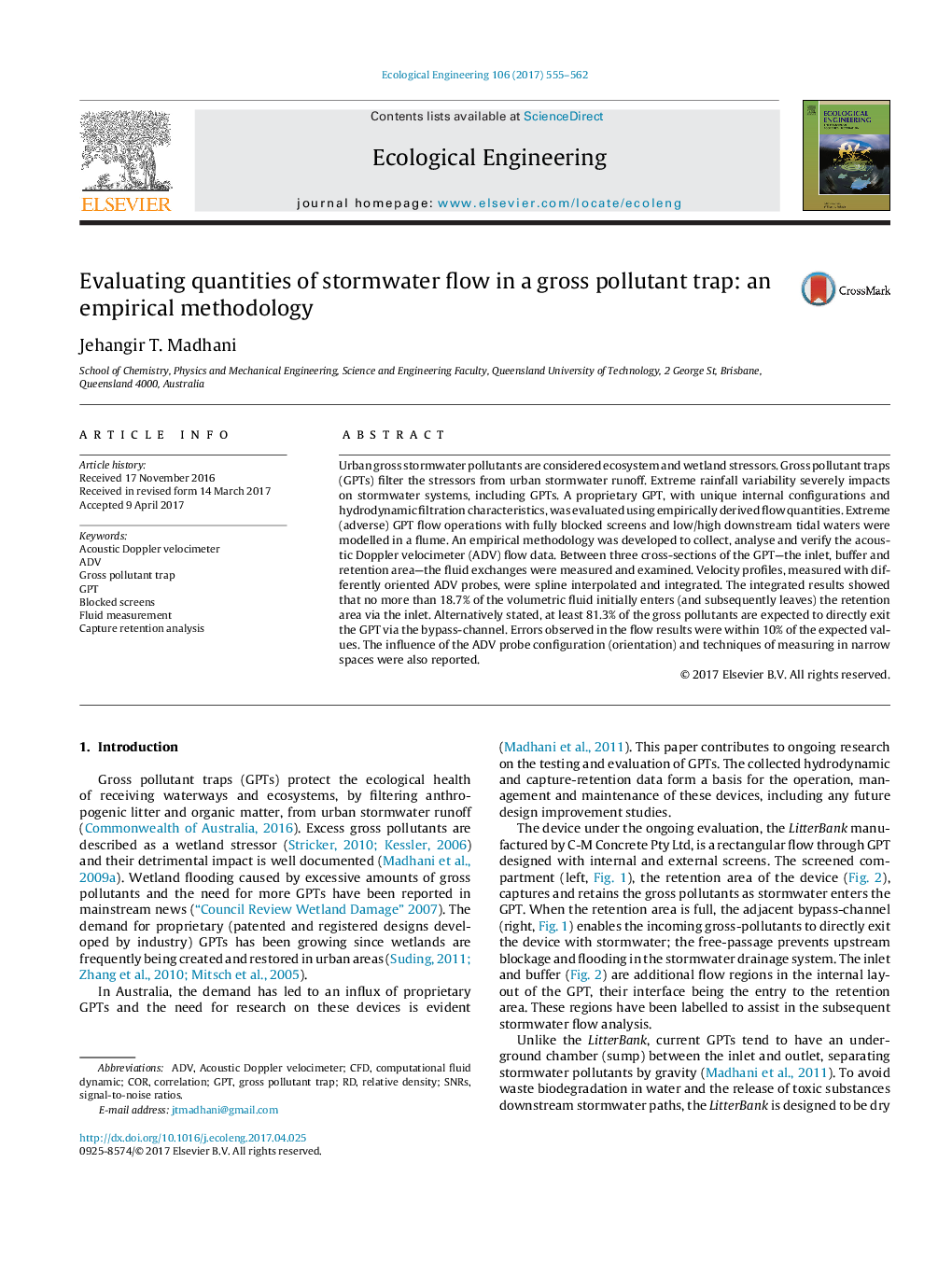| Article ID | Journal | Published Year | Pages | File Type |
|---|---|---|---|---|
| 5743873 | Ecological Engineering | 2017 | 8 Pages |
Urban gross stormwater pollutants are considered ecosystem and wetland stressors. Gross pollutant traps (GPTs) filter the stressors from urban stormwater runoff. Extreme rainfall variability severely impacts on stormwater systems, including GPTs. A proprietary GPT, with unique internal configurations and hydrodynamic filtration characteristics, was evaluated using empirically derived flow quantities. Extreme (adverse) GPT flow operations with fully blocked screens and low/high downstream tidal waters were modelled in a flume. An empirical methodology was developed to collect, analyse and verify the acoustic Doppler velocimeter (ADV) flow data. Between three cross-sections of the GPT-the inlet, buffer and retention area-the fluid exchanges were measured and examined. Velocity profiles, measured with differently oriented ADV probes, were spline interpolated and integrated. The integrated results showed that no more than 18.7% of the volumetric fluid initially enters (and subsequently leaves) the retention area via the inlet. Alternatively stated, at least 81.3% of the gross pollutants are expected to directly exit the GPT via the bypass-channel. Errors observed in the flow results were within 10% of the expected values. The influence of the ADV probe configuration (orientation) and techniques of measuring in narrow spaces were also reported.
